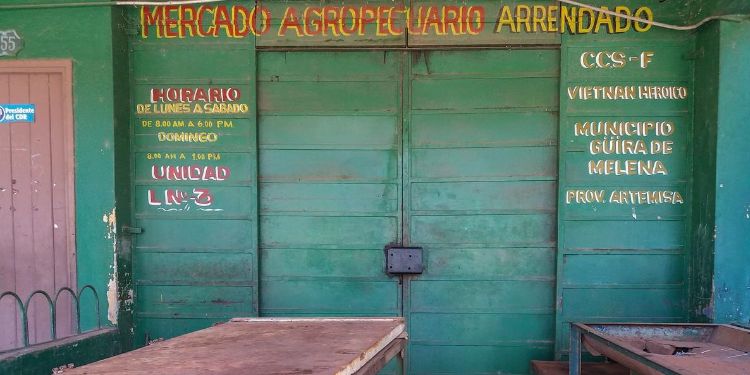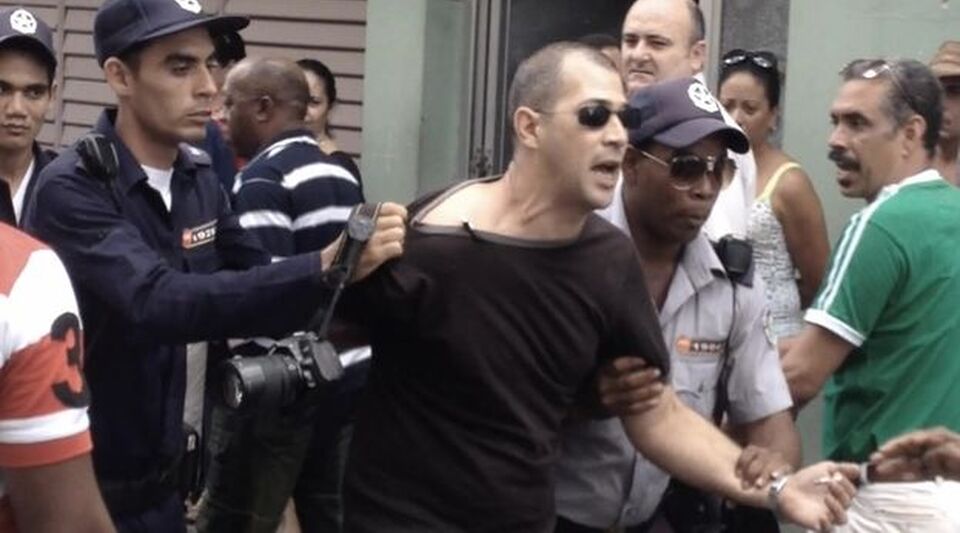Mexico City, Mexico. – In 2013, the director general of the Food and Agriculture Organization (FAO), José Graziano da Silva, said: “Cuba today has a food security situation comparable to that of developed countries, with an undernourishment rate of less than 5% of the population.”
Five years later Marcelo Resende, representative in Cuba of the FAO, declared: “Cuba demonstrated its vocation for the development of food production with the democratization of the land through the Agrarian Reform, whose first law in this regard was signed on May 17, 1959.” The official added that “since the first years after 1959, the country began to promote agriculture as a fundamental sector to produce food for the population.” He finally sentenced: “Hunger in Cuba is not a problem.”
Frei Betto, advisor for nutritional issues of the Food and Agriculture Organization of the United Nations (FAO), and of the Food and Nutritional Security Plan of the Cuban regime (SAN), stated in December 2021: “In Cuba there is no hunger. But Cubans have a big appetite! The Government spends more than 2,000 million dollars a year to import food, including from Brazil, from which it buys, among other things, rice and chicken… ”, he pointed out. His statements sparked a wave of outrage on social media.
For this “expert” in nutrition, Cubans should eat the shells of legumes and change the wheat flour for cassava flour, used by our ancestors to make cassava. This solution, disrespectful to citizens, leaves out the access and quality of food, an indicator of the UN’s right to food.
The superficiality and falsehood of the three officials regarding the right to food in Cuba can only be explained as ideological support for the Cuban regime, a fraud against Cuban citizens and the international community.
The data
According to the National Statistics Office (ONEI), less than half of the arable land in Cuba is dedicated to temporary or permanent crops. Almost a million hectares of fertile land remain idle, and 45% of the arable land is dedicated to cattle grazing. Faced with these data from 2018, citizens wonder: why is there no food? And especially: why are beef and pork meat scarce?
In April 2021, the Deputy Prime Minister of Cuba, Jorge Luis Tapia Fonseca, said in the “Round Table” space of Cuban Television that less than half of the available agricultural land was cultivated on the Island. He specified that the country had “more than 10 million hectares of land” and that “of these, more than 6 million are arable land (58%), but only a little more than 3 million are cultivated.”
In a study conducted in 2004 Uruguayan and Cuban experts on meat production concluded, comparing cattle production in Uruguay and Chile, that small cattle farms would be necessary under the rules of the market economy. The study showed the decrease in the Cuban livestock mass, and a projection for the year 2009 of just over 3 million head of cattle. That is, half of what Cuba had in 1958.
Diagnosis and solutions
The ration book has hidden food insecurity in Cuba. The poorest basic food basket in Latin America shows that subsidized citizens are not able to obtain, per capita, the essential daily kilocalories. In Cuba there is moderate to severe food insecurity, when citizens cannot eat three times a day. Comparing the basic baskets of Mexico, Ecuador, Argentina, Colombia and Peru, the number of products is much lower in the case of Cuba, and the amount allocated per person is also lower. In other words, Cuba only subsidizes 19 products, and proteins -meat, fish, eggs, legumes-, vegetables, fruits and dairy products, are well below the amounts established in the basic baskets of other countries.
the fifth report of the Cuban Observatory of Human Rights (2022), which covers 14 of the 15 provinces of the national territory, indicates that 59% of those interviewed stopped eating breakfast, lunch or dinner this year due to lack of monetary resources, or due to a food deficit.
For decades, public policies in relation to agriculture and livestock production have continued to be erratic due to the lack of definition of property and its rights; the state dependency to acquire the capitals and the necessary inputs in the production; the obligation for peasants to join cooperatives or state companies in order to carry out all the procedures related to the acquisition of inputs, work implements and credits; in addition to the prohibitions on producers to import and export directly.
Cuban peasants must pay six types of taxes and do not have wholesale markets where they can buy supplies and tools for agricultural production. Microcredits are scarce and insufficient to cover the cost of agricultural implements. The state monopoly Acopio, in charge of collecting the production in the fields, leaves the crops to rot due to lack of containers, trucks or fuel. The obligation to deliver 75% of the production to the State, at prices below the market, stagnates production and maintains the “food anguish”.
On the other hand, state payments to farmers often take several months, preventing them from starting a new harvest cycle. The internal trade monopoly for food distribution keeps the markets of basic necessities unsupplied, and the new mypimes (micro, small and medium-sized companies) maintain this chain of obligatory state intermediaries between the producer and the consumer.
In 2018, Professor Carmelo Mesa Lago proposed the following measures to achieve food security in the country: 1) increase the size of the parcel and extend the period of the usufruct contract from 20 to 50 years or indefinitely; 2) create wholesale markets throughout the country that supply usufructuaries and landowners with essential inputs at reasonable prices, actions that would be compensated with an increase in production and lower prices; 3) eliminate the Acopio monopoly and let the usufructuaries decide what to produce, to whom to sell and set prices, without state intervention; 4) promote voluntary and autonomous cooperatives that market the products generated by usufructuaries and landowners, in order to replace state or private mediators who pay low prices to producers and raise prices to consumers; 5) train usufructuaries either by the government, NGOs or other entities; 6) not limit the usufructuary’s investment in the plot, guarantee it in case of non-renewal or termination of the contract, and allow foreign investment subject to the appropriate legal regulation; 7) increase microcredit to agriculture, preferably through a bank specialized in this activity; 8) allow the free hiring of employees, regulating their working conditions; 9) unify the five existing taxes (sale, labor, land value, income and idle land), preferably into one on sale and with an appropriate rate that does not discourage production; 10) reduce the social security tax for cooperative members, five times higher than for state employees; 11) establish easy and fast procedures to request usufruct, investment, etc.
Despite these suggestions, FAO officials continue to support a National Food Plan that maintains the same state impediments to private property, free production and trade, with all the intermediaries and state controls that have hindered the production of foods.
The problem is not the US embargo, but the lack of economic freedom for producers. The officials of the FAO should be less “ideological companions” and better professionals, if they are really interested in the “food security” of Cuba.
OPINION ARTICLE
The opinions expressed in this article are the sole responsibility of the issuer and do not necessarily represent the opinion of CubaNet.
Receive information from CubaNet on your cell phone through WhatsApp. Send us a message with the word “CUBA” on the phone +525545038831, You can also subscribe to our electronic newsletter by giving click here.















